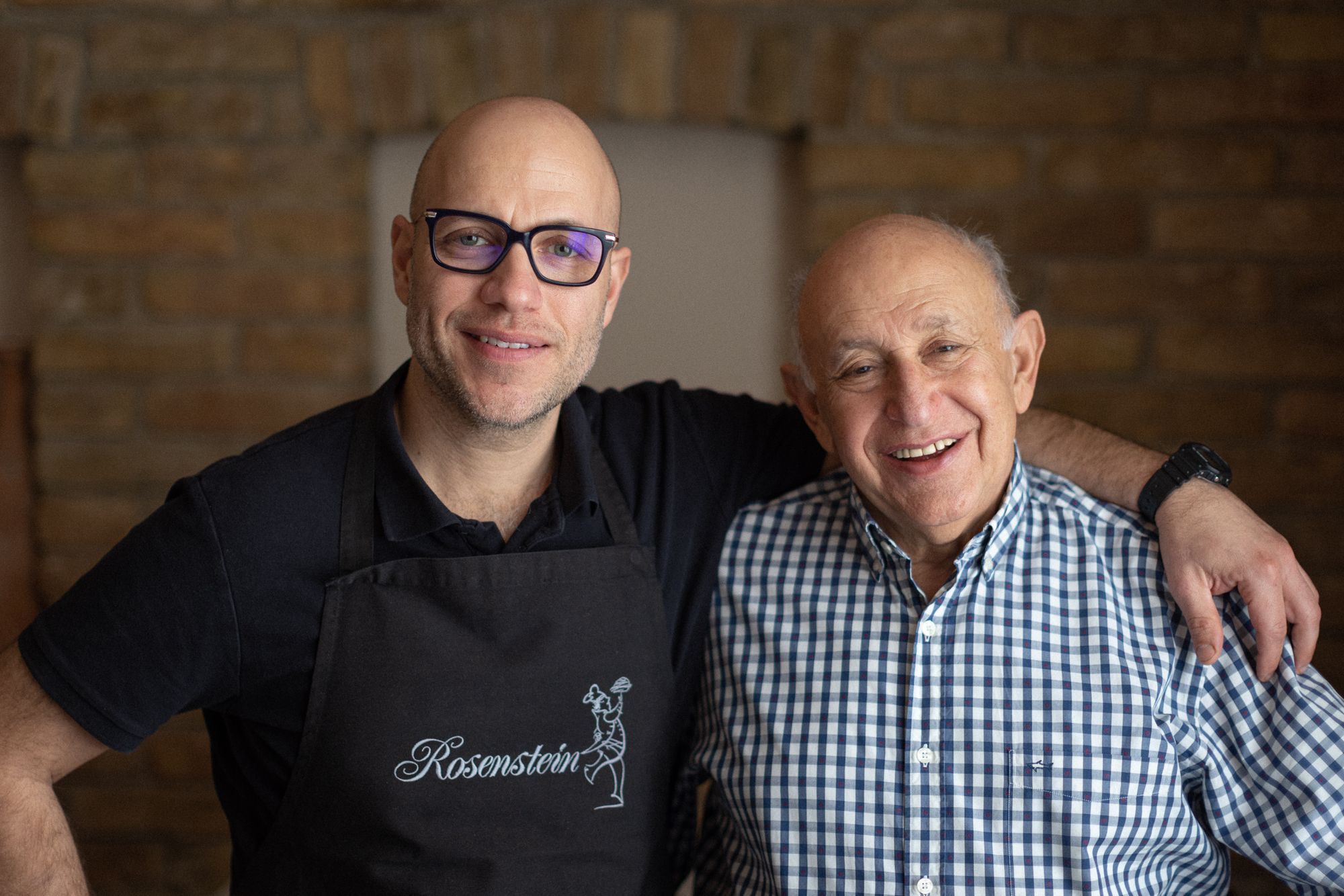They have hosted guests such as Robert de Niro, Steven Spielberg and Mark Ruffalo, but that’s not the only reason Rosenstein Restaurant is legendary. It’s not just a place to eat, it’s a place to be—a genuine family-run restaurant where guests have been welcomed with a smile and love for over 20 years. Besides Tibor Rosenstein, it’s mostly his son Róbert who now runs the kitchen. The traditional and justly famous cholent, the estragon venison ragout soup, the catfish paprikás served with túrós csusza (a traditional Hungarian savory curd cheese noodle dish made with small home-made noodles—the Transl.) and the flódni (a stuffed dessert of the Ashkenazic Jewish cuisine—the Transl.) are all well served with modern dishes. What is their secret? As Tibor’s grandmother used to say, “everything is kosher that is good.” We conclude our thematic TASTE month with the Rosenstein family.
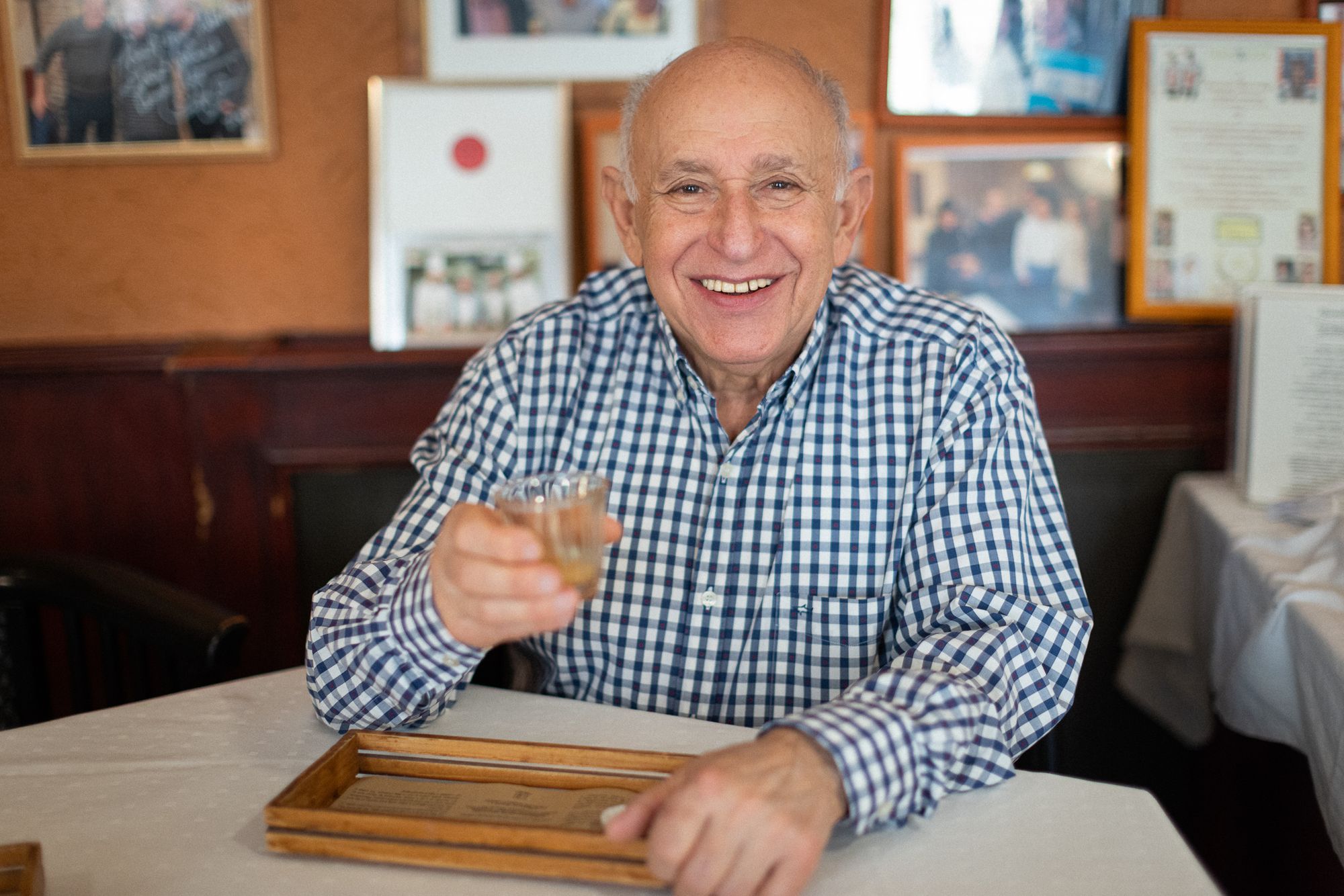
Whenever I tell my friends about Rosenstein, I say it’s a Jewish restaurant. This is not entirely true, as you feature non-kosher ingredients, such as pork, on your menu, and Tibor himself uses the expression ‘Jewish-like’ when talking about it. What does being Jewish mean to you (even outside the kitchen)?
Róbert Resensten: That’s right, we don’t keep kosher.
Tibor Rosenstein: Right, we aren’t bigot religious people, but we do respect traditions. I go to church occasionally. Actually, when a guest says that they’ve come to the Jewish restaurant, I reply, “Robi and I are Jewish, the restaurant isn’t.” We built up the Rosenstein flavors that we brought from Mama. What we put in is typical of Jewish cooking—the ginger, the sweeter flavors, the spices…
Robi: the more sour flavors…
Tibor: It’s there in all our dishes. Guests always ask what the Rosenstein flavors mean. I have to say, there’s no secret, it’s just what I brought from Mama and Robi from me.
Tibor, you’ve been in the business for nearly 65 years. How were restaurants different when you were a young chef, what do you remember, and how do you see the profession today?
Tibor: This is my 62nd year in the business. I think what was different is that whoever worked in this sector tried hard to learn it. Who taught us tried to pass on the profession, but they let us steal their tricks. We were very enthusiastic about the profession. Everything was in order in the kitchen; expectations were high, today it’s less so. Everyone wanted to stay there, to achieve something. I think what was discouraging back then was the fact that we couldn’t just go abroad to study. The chefs that taught us had all been to France to exchange experiences before the war. We didn’t have this opportunity: we had to learn what we saw here. Our teachers were well-respected chefs, and this profession was of very “high quality.”
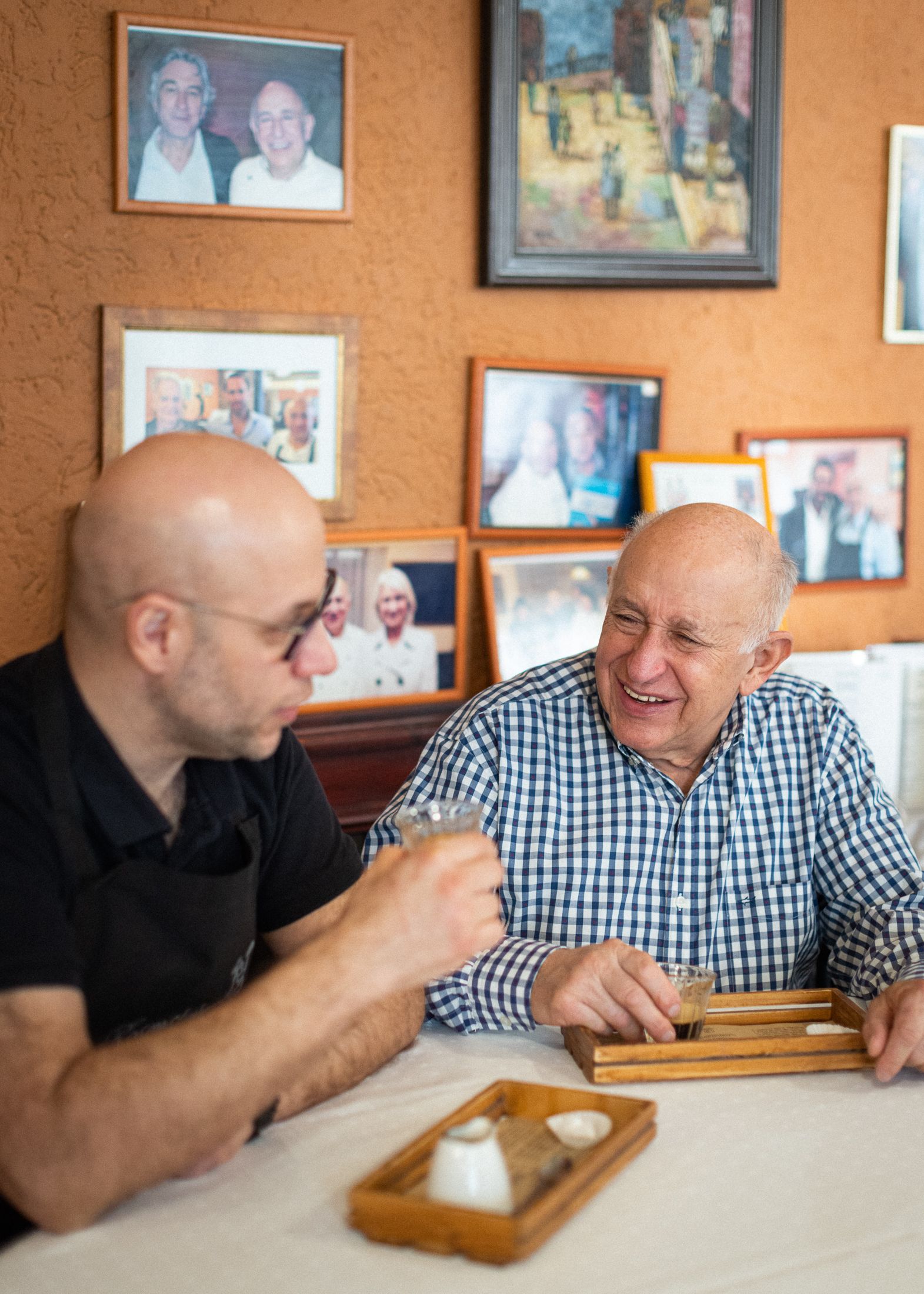
The order was quite different back then: as a chef, in the beginning, I was put into the meat preparation room to learn how to work with meat. Or, for example: even though there were machines back then, you had to cut vegetables by hand with a knife to this or that size, onions in crazy quantities… We were trained for practice. It was nice, I enjoyed it. I never wanted to give up the trade, they made me like it. I always say that it’s like love: if you fall in love, you can go all the way, if you don’t, there’s no point.
The chefs didn’t compete with each other about who could skip more but who could learn more. I think it’s not so today. I feel that today, there are very few students in the profession. Most of them choose this career because of family pressure. For many years, we have had many students who waited tables, but none have stayed. It was different with the chefs. I somehow managed to keep them with me because I could make them love the profession.
Robi: I feel that our newcomers won’t stay long. Sadly, the fluctuation is huge.
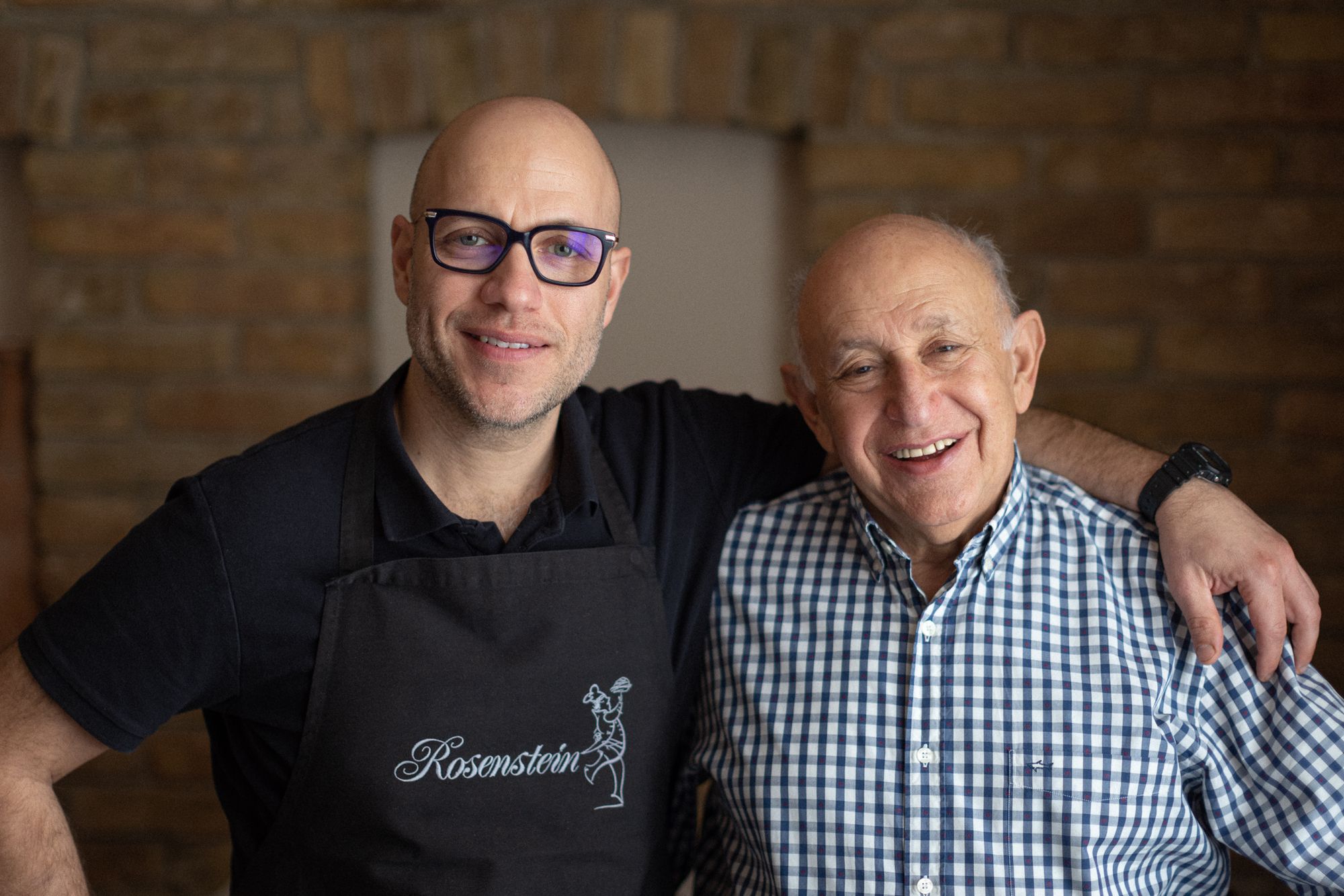
In April 2020, when his granddaughter, Mira was born, Tibor started to write a blog where he mentioned a very interesting case. It happened that one of his old colleagues wanted to eat fish jelly. Tibor asked them about the dish and then prepared it according to the guest’s taste, the way their mother would have prepared it. “This is how you turn a colleague into a happy, tearing customer,” Tibor wrote in his blog. Robi, what would you do in such a situation? And Tibor, would you do the same today?
Robi: Good question, I’m thinking about that, too. Dad’s my idol: for instance, when my daughter asks him to prepare something for Sunday lunch and my other daughter asks for something else, he ends up preparing 5 different main courses. Cooking is one of his love languages. To me, he’s not a chef or a restaurant owner, he’s a host. Of course, guests and colleagues are crazy important to me, too. But if they ever asked me something like this, I’d definitely turn to dad. Recently, one of the guests asked for pig’s trotter stew, and I convinced dad to make it.
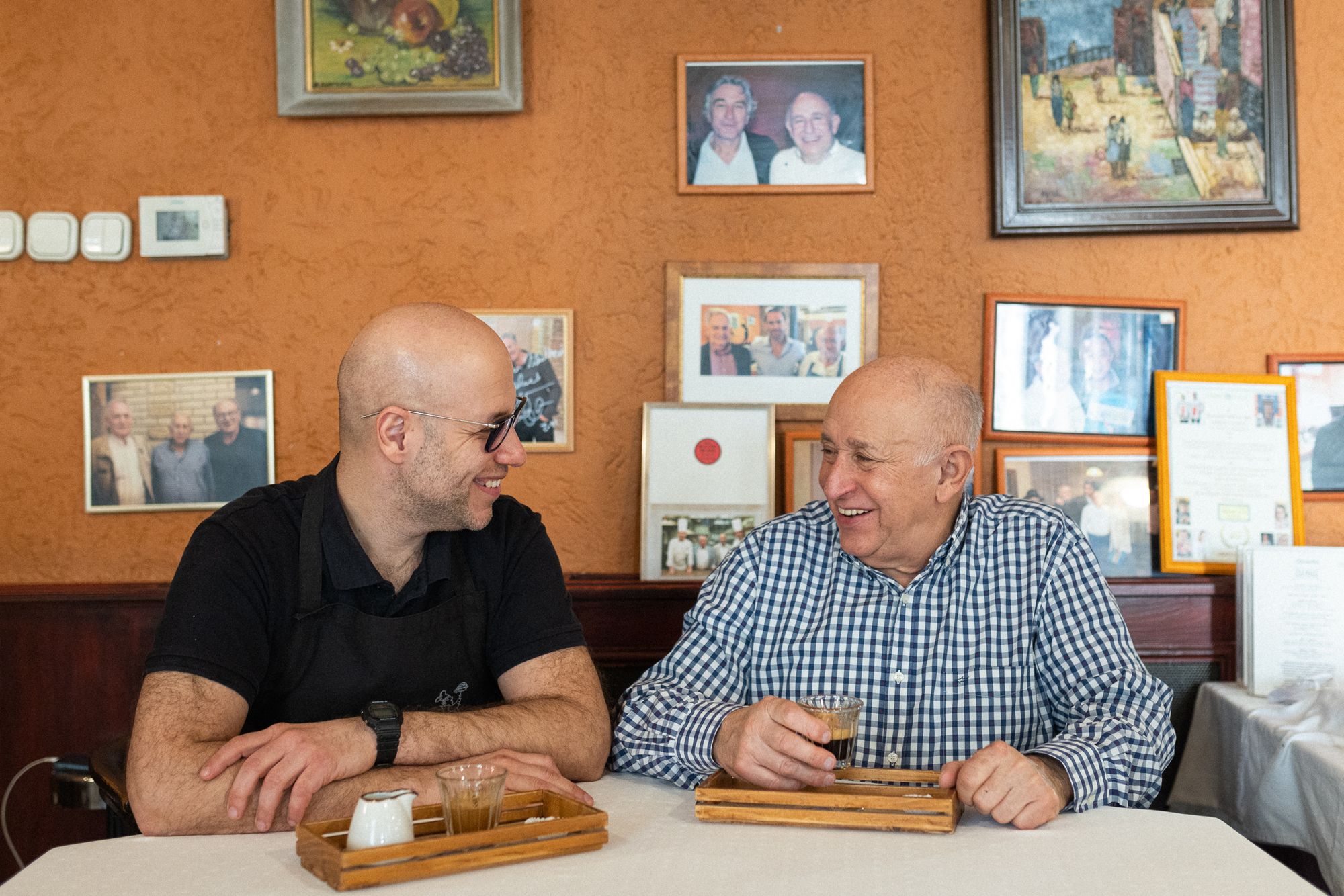
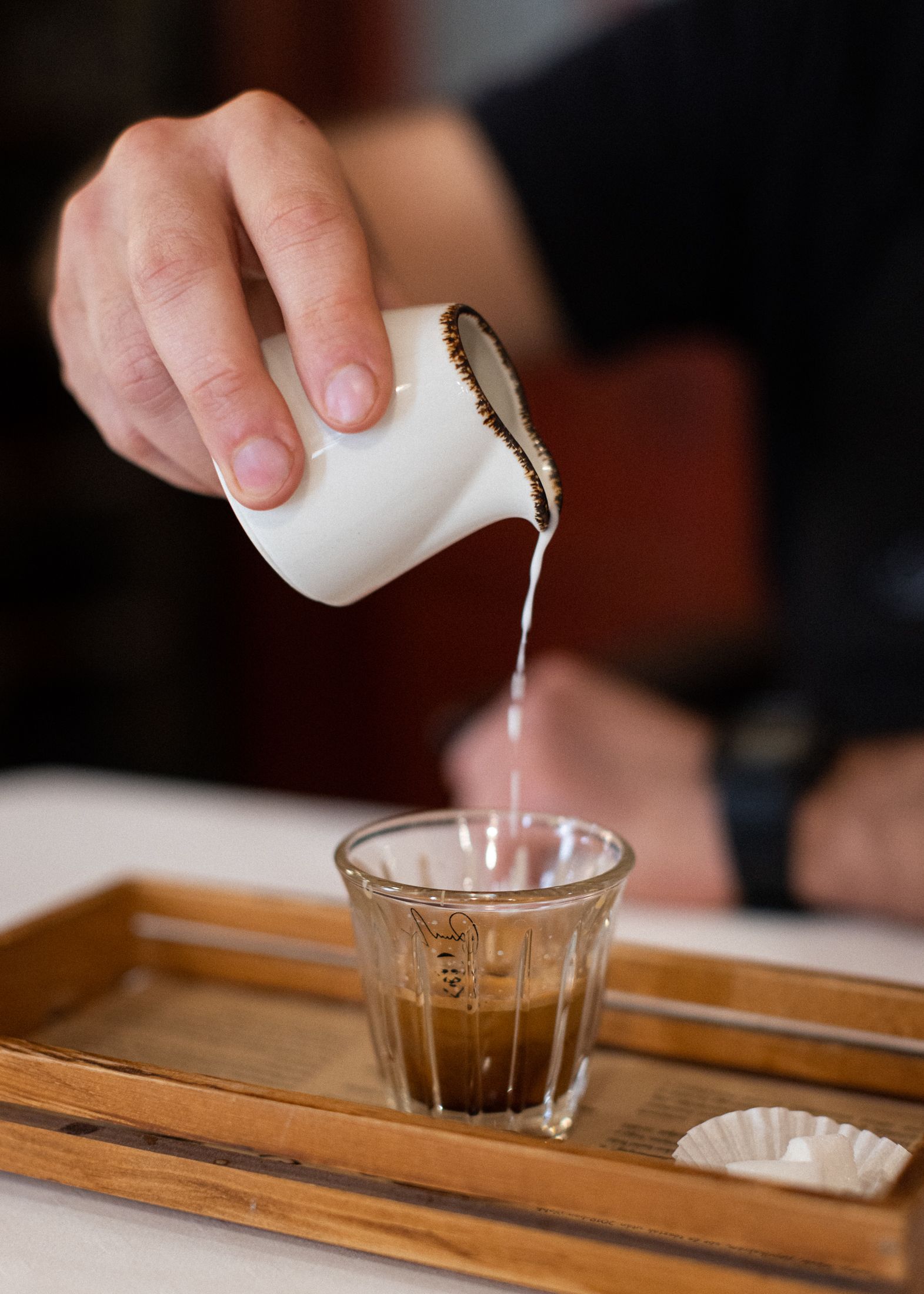
You work a lot, your job is definitely your passion, but you always dedicate Sunday to your family. I’m curious whether you have any frequently visited restaurants, or what would you choose if you’d like to have a nice breakfast, lunch or dinner (with or without your family)?
Robi: Every Sunday, me and my wife go to Arán Bakery to get some bread, it’s one of our favorites. Whenever we have time, we walk around and have lunch, of course, we have frequently visited restaurants. I used to visit our colleagues more, check out the novelties, and even go to fine dining restaurants. Now, we returned to the old favorites. Dad and I used to go out to see the world before Covid; we visited London, Lyon, Austria, for instance. That’s always a very nice program.
Though we’re closed on Sundays, many other places are, too, which is a difficulty. (laughs)
Tibor: We like to go to a fish restaurant to eat fishermen’s soup in Dunaföldvár. We also occasionally visit KisBíró (Vendéglő a KisBíróhoz—the Ed.).
Robi: We recently discovered Zhu&Co with my wife—they have amazing bundles!
Tibor: Why haven’t I been there? (laughs)
Robi: Cause I’ll take you later. (laughs)
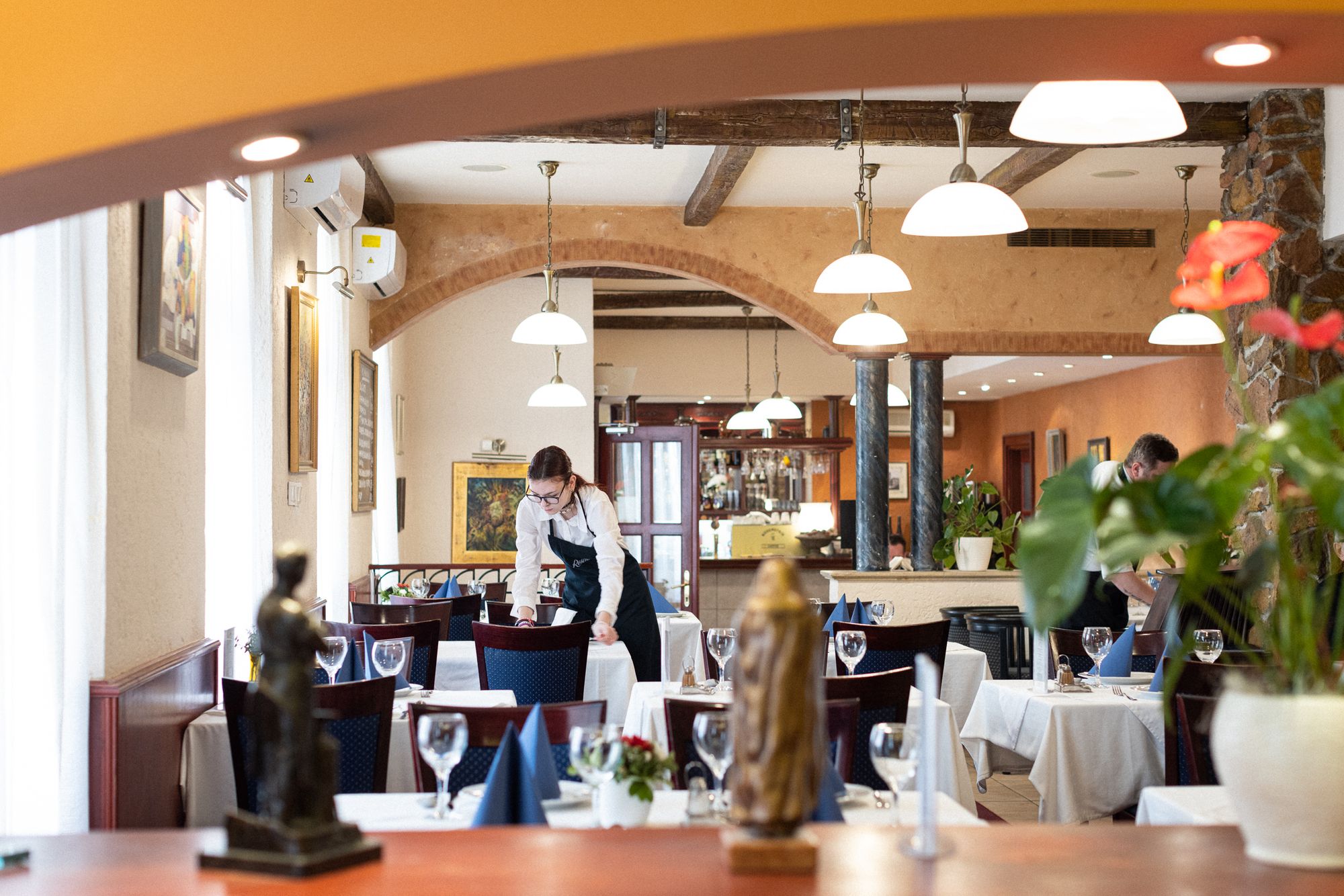
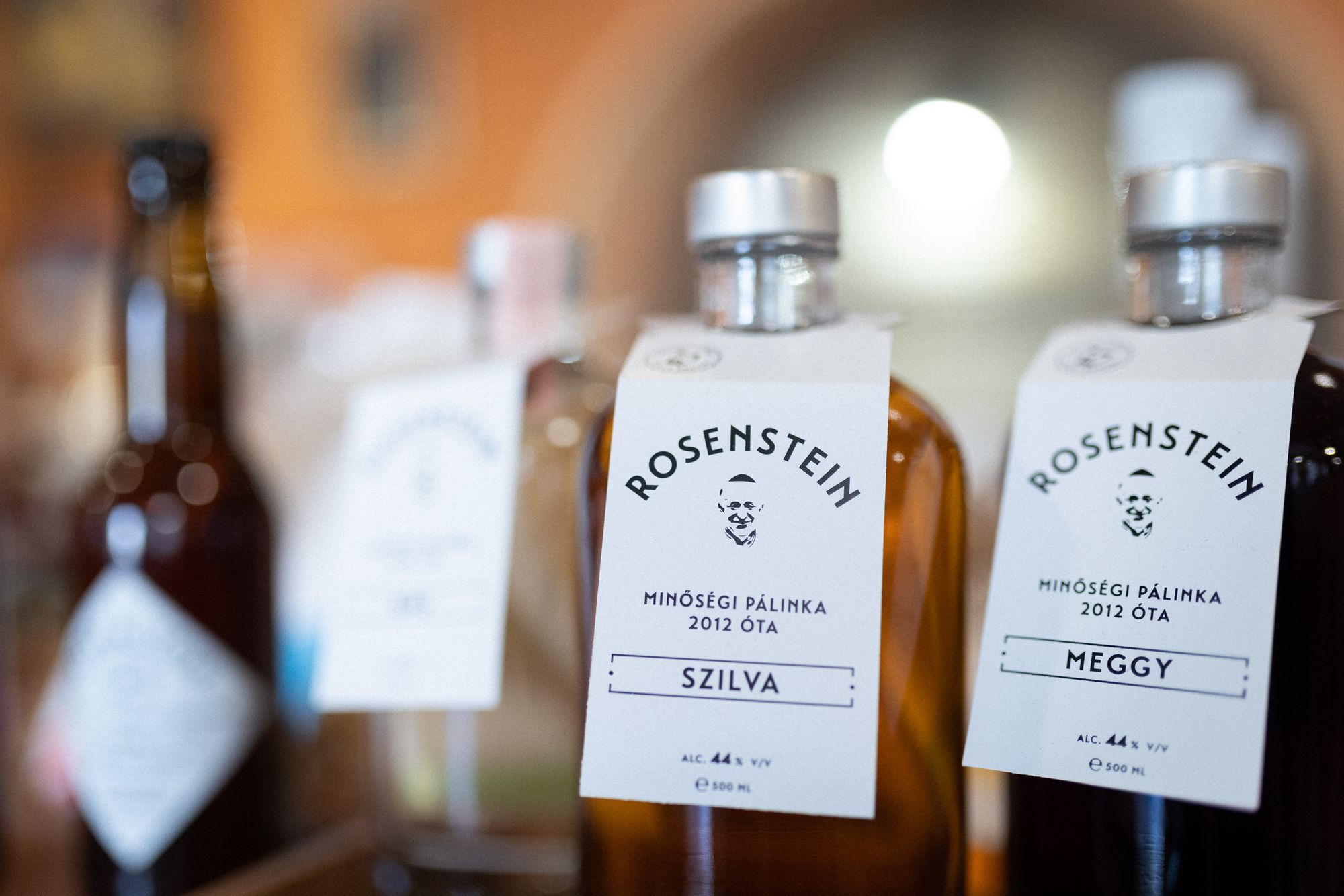
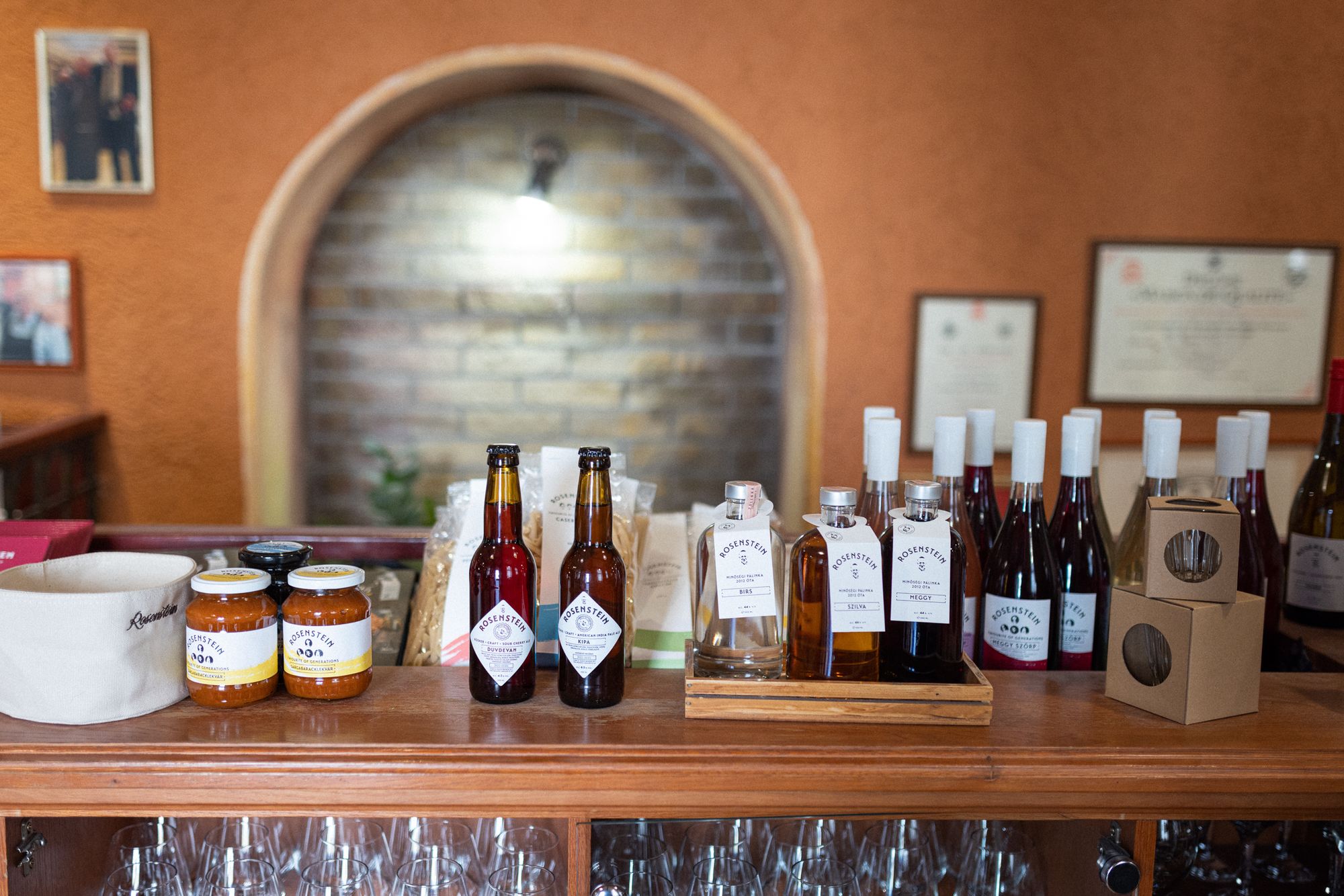
It’s commonly known that only Tibor is allowed to peel the asparagus. Are there any more privileges like this or any other secrets you’d like to share?
Robi: Yeah, asparagus is definitely one of these, but also, dad’s the only one who can make wild boar rillette.
Tibor: I usually make pig’s trotter stew and stuffed paprika, too.
I read in an interview that you’re about to launch something in Buda, as well: “It’ll be a Rosenstein, but not a restaurant.” Can we ask about this project?
Robi: We have two upcoming projects. One of the loves of my life is the butcher’s shop, even though I occasionally omit meat from my diet. Once I omitted it for 8 months, I wanted to try it. You tend to be more creative, with side dishes, for example. I think this is the way to go, not to eat meat all the time.
But a butcher shop is a dream of mine, I might be able to make it come true soon with a friend. It would be based on the American butcher shop style: red meat, cold cuts, breakfast menu and, of course, Jewish eggs… Another dream is to open a coffee roaster with a friend, it’ll be named Broastery. We’ll probably open it in Buda, at least I hope so.
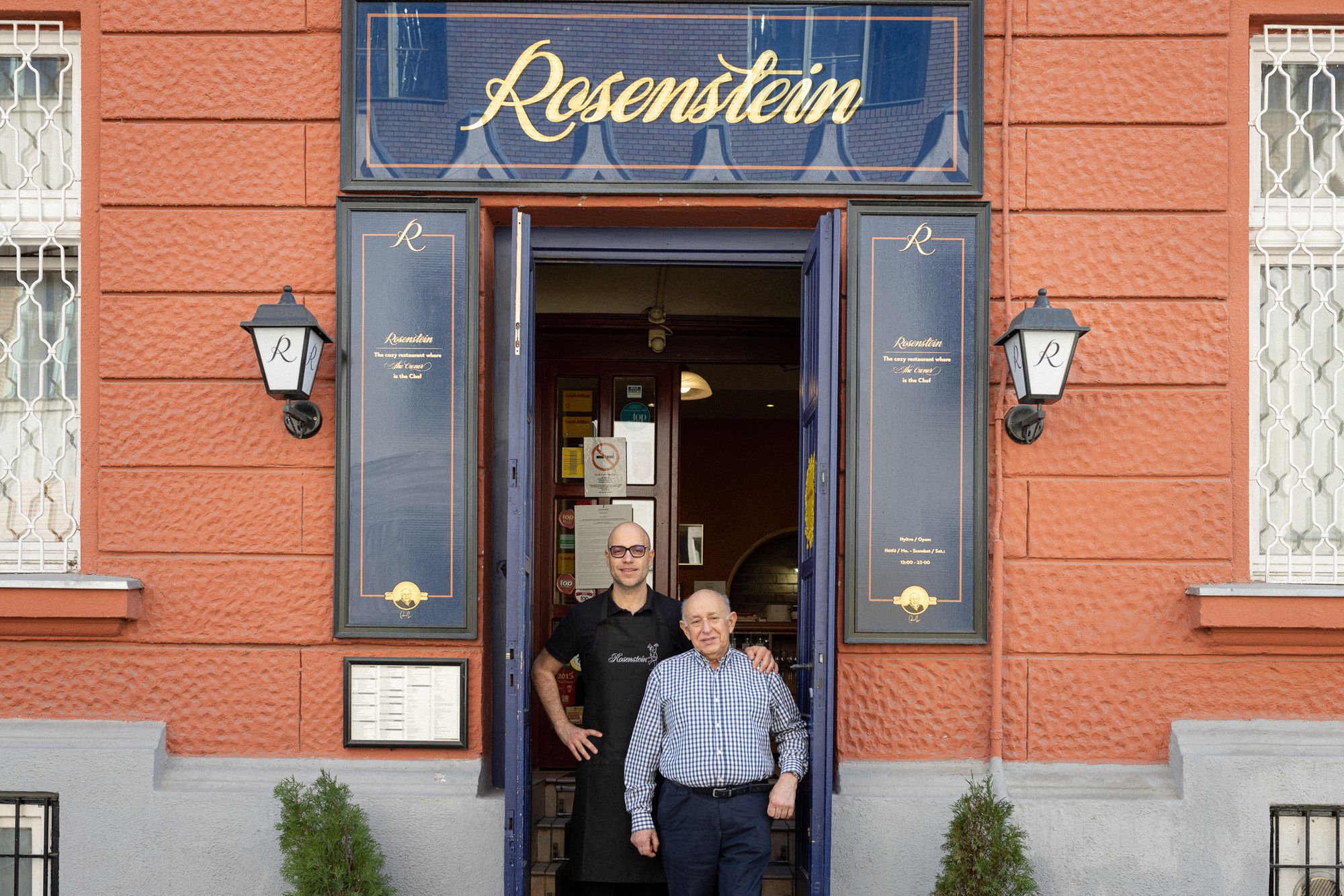
And some more questions about food…
What is the one food you would pass on in a time capsule for future generations?
Tibor: How big is that capsule? How about a veal leg? (laughs) I’d say something really, traditionally Hungarian, like tripe stew.
Robi: For me, it’s obvious: Mum’s broth.
What do you think should not be missing from the Sunday lunch table?
Tibor: We’d both say Mama’s meat broth.
Which food gives you the greatest comfort?
Robi: For you, paprika potatoes, right?
Tibor: Yes, and cabbage noodles with sugar. I’m a big pasta consumer anyways.
Robi: I think for me, It’d be good sourdough bread.
Are there any ingredients that you have rediscovered in recent years?
Tibor: The Jerusalem artichoke, for instance.
Robi: Beef cheek. And now, mushrooms.
What’s your favorite texture?
Robi: I have two of that. There’s that jelly texture of pig’s trotter stew… I can hardly swallow now. I love it. The other one’s crispy, like a crispy part of the pork…
Tibor: It’s changed for me, as our taste changes. Now I’d say crispy, too.
Is there anything that can chase you out of the world?
Tibor: A spoiled dish. I spend three days on a lukewarm potato, an oversalted soup, wondering why it had to happen this way. Because it shouldn’t. You can do this job by rote, but attention is very important.
Granny’s cooking:
Tibor: Sensational! What I’m stuck with and addicted to is the bean soup, unchanged. And boiled dumplings. You know, I had two grandmothers, one cooked everything and the other was kosher. The kosher one made the brilliant boiled dumplings, to this day, I regret not knowing her recipe. The other grandma made bean soup in a cast iron pot. I try to copy that.
Food phobia:
Robi: For me, tomato cabbage stew. It could chase me out of the world.
Tibor: For me, it’s sorrel. Even though Mama, your mum, likes it very much, I make it all the time and seemingly, it’s great. I could never eat it though.
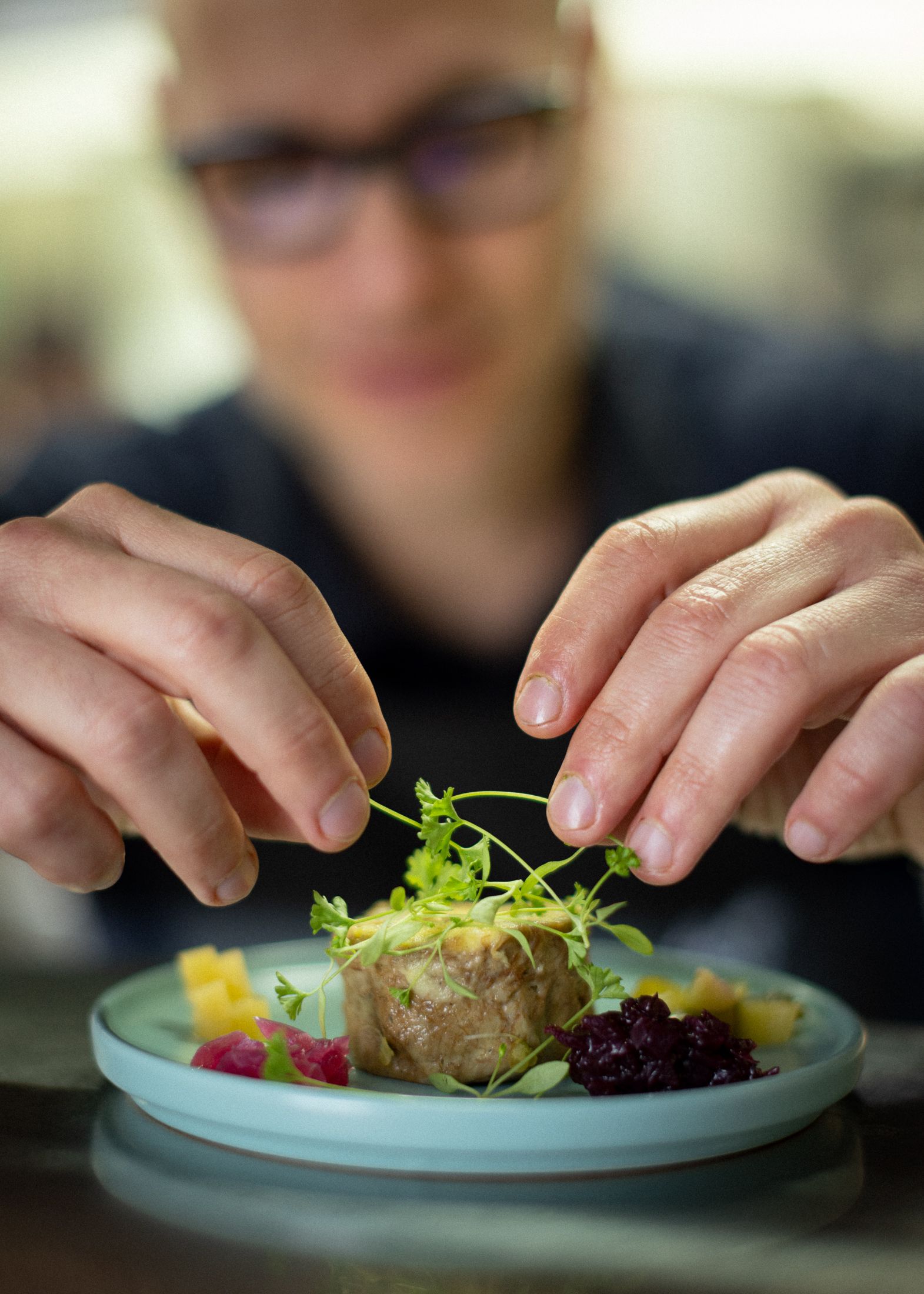
What comes to your mind when you hear ‘kitchen disaster?’
Tibor: One of our colleagues told me about a time when Dani’s pork rind caught fire in the pot.
Robi: That was rough.
Tibor: But many things can be a kitchen disaster. It can be a technical condition, it can be a screw-up that can cause an accident. And it can also be a mistake in the service with the food selection, and the kitchen gets swamped with work…
Robi: Or, all at the same time.
Food that makes the world a better place:
Tibor: Paprika potatoes.
Robi: Paprika potatoes for you. Alright, I’ll go with Mum’s meat broth again.
The most perfect thing I have ever eaten:
Robi: You know the first thing I thought of? When we were in London and we had that pork at Le Gavroche. Do you remember what it was like?
Tibor: It was divine!
The first dish I made:
Robi: I distinctively remember this one. Mum was in the hospital a lot, you worked all the time, I slept over at Kis Lajos’ a lot. This was the “piff puff omelet” (omelet with potatoes).
Tibor: Mine’s also potatoes. My grandma and I made potato pasta, still one of my favorites.
If you’d like to hear more questions we asked, check out the video.
Photos: Balázs Mohai
Rosenstein Vendéglő | Web | Facebook
Rosenstein Róbert | Instagram

Ten thousand IT experts are missing from Slovakia | Innovation and startups in the CEE region - Part III.

Be a specialist so others can lean on you | Interview with Csaba Tóth, Ph.D., experimental physicist - Part II.










